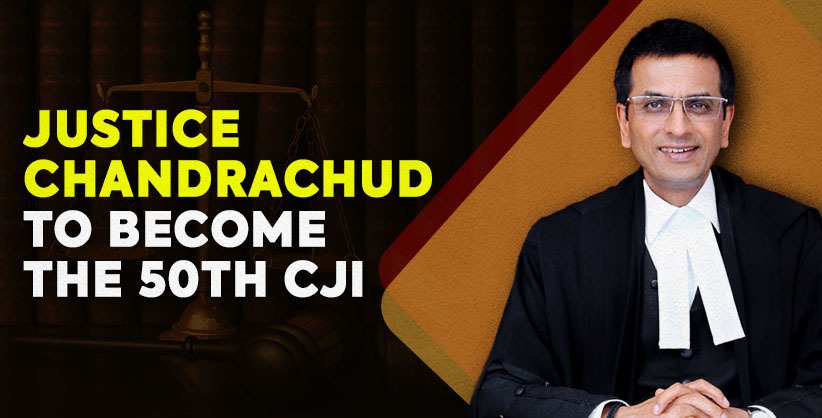50th CJI
Why in News?:
Justice DhanajayaYeshwantChandrachud was appointed as the 50th Chief Justice of India (CJI) succeeding the 49th CJI Uday Umesh Lalit.
Justice Chandrachud will have a relatively longer tenure of two years and is due to retire on 10th November, 2024.
What are the Key Facts about Chief Justice of India (CJI)?
Qualifications:
The CJI should be a citizen of India.
He/She should:
Have been for at least five years a Judge of a High Court or of two or more such Courts in succession or
Have been for at least ten years an advocate of a High Court or of two or more such Courts in succession, or
Be, in the opinion of the President, a distinguished jurist.
Appointment of the CJI:
The CJI and the Judges of the Supreme Court (SC) are appointed by the President under clause (2) of Article 124 of the Constitution.
As far as the CJI is concerned, the outgoing CJI recommends his successor.
The Union Law Minister forwards the recommendation to the Prime Minister who, in turn, advises the President.
SC in the Second Judges Case (1993), ruled that the senior most judge of the Supreme Court should alone be appointed to the office of the CJI.
The SC collegium is headed by CJI and comprises four other senior most judges of the court.
The collegium system is the system of appointment and transfer of judges that has evolved through judgments of the SC (Judges Cases), and not by an Act of Parliament or by a provision of the Constitution
Recent Development:
In 2019, the SC ruled that the office of Chief Justice of India (CJI) comes under the purview of the Right to Information (RTI) Act, 2005.




.jpg)


.jpg)
.jpg)
.jpg)
.jpg)



